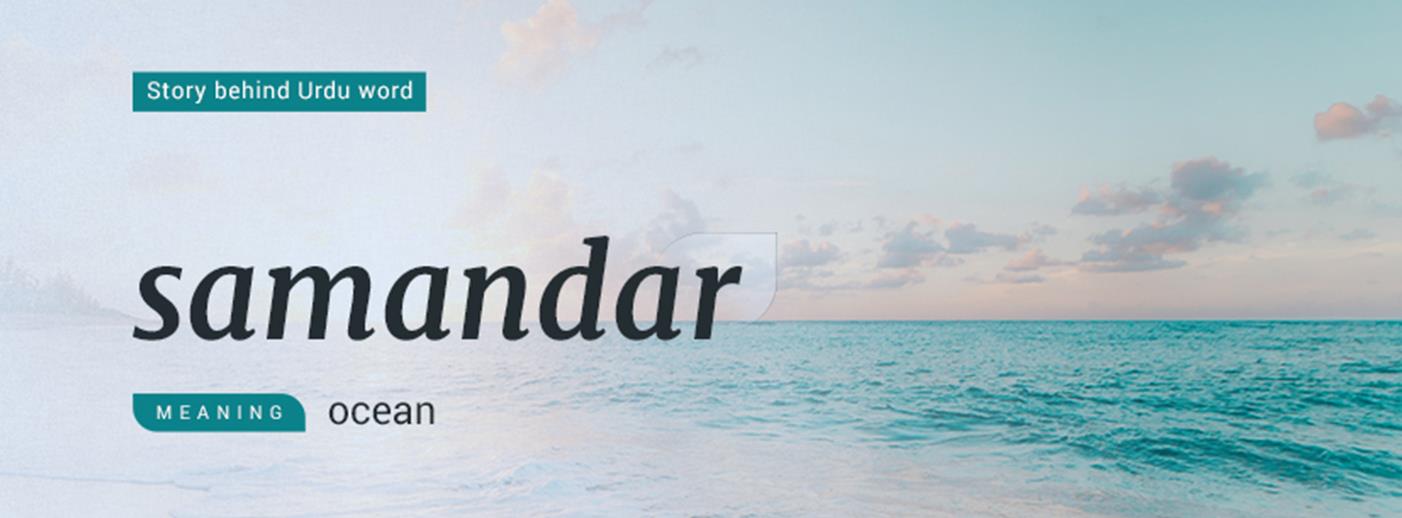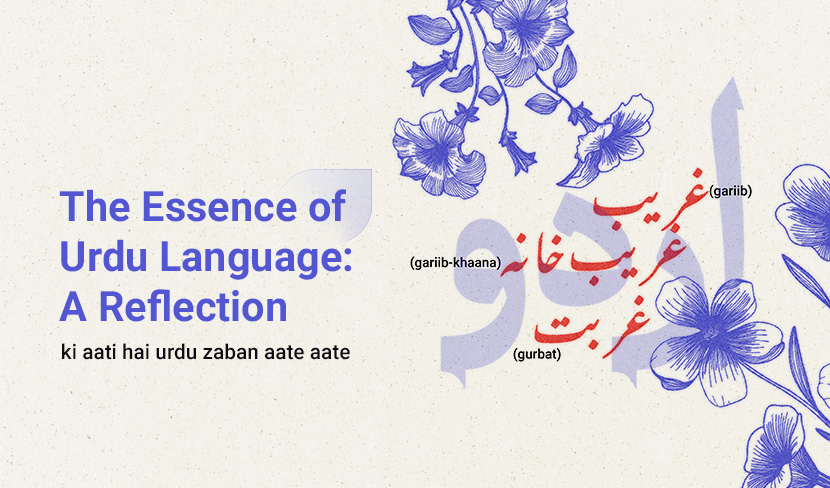Top searched
Saved words
khisyaanii billii khambaa noche
an embarrassed or ashamed person tends to vent his/her feeling by quarrelling
be-niyaaz
without want, free from want, wanting nothing, not in need, able to dispense, independent, carefree
Samandar: Aag Bhi Paani Bhi

Every day we come across several similar-sounding words from different languages and conveniently navigate our way through them.
But finding a way out is not always as easy, especially when you’re reading Urdu poetry, that too, classics.
Let’s take a few examples.
Kaam in Hindi means work or cohabitation, but (from Persian) also means ‘throat’; that’s why we often come across the phrase ‘Tishna-Kaam’ or dry-throated, in Urdu poetry.
Baal in Hindi is hair, but also means (from Sanskrit) a child. In Persian, however, it means the wing of a bird, giving way to phrases like baal-o-par, wing and feather, and baal-e-Jibril, the wing of Gabriel.
Par, too, is from the same family of words meaning on, above, or but in Hindi, but feather in Persian. Thus, compounds like par-shikasta, feather-waned, and par-burida, feather-chopped, abound Ghazal.
Another such word is Samandar, which is commonly taken to mean ocean, sea, or a large water body. Often pronounced Samundar, it shows its Sanskrit roots, originating from the word Samudra.
In Sanskrit, Samudra literally means “sealed” (Sa+Mudra = With Seal), and came to mean ocean because the shore appears to be sealing the water body, hence SaMudra.
But, there’s yet another side to it.
If you’re a reader of classical poetry, there is a good chance you’ll bump into Samandar a lot, but not this one!
In Persian, Samandar means a lizard that lives in fire i.e., a Salamander. Earlier, natives used to call it Aag kaa KiiDaa.
Just like the Sanskrit Samudra morphed into Samandar, it’s Persian twin too, revamped.
The original word was Saam-andar. In old Persian, Saam meant fire, and Andar, as we know, means inside, literally, ‘in-fire’ that is, fire-dwelling.
Pokemon fans, this is where our beloved character Charmandar is derived from (the more you know!).
Oh, if you’re still wondering, “why know this difference?” Give the following two couplets a read.
Urfi Shirazi (1556-1590), the lavishly favored poet of Akbar’s court, writes in a verse numbered among the best of Persian couplets:
Ham Samandar baash-o-ham maahii kih dar jaihuun-e-Ishq
Ruu-e-dariyaa Salsabil-o-Qaa’r-e-dariyaa aatish-ast
In the river of Passion, both like the Salamander and fish, be
For its surface is Paradisiacal, its bottom Purgatory
That is, in love, be prepared for the best (and worst) of both the worlds!
I often think Urfi knew the Sanskrit-derived Samandar, too. Or how else he was able to pull off such a play on script, we’ll never know!
And of course, Ghalib, who else:
jaarii thii 'asad' daaG-e-jigar se mirii tahsiil
aatish-kada jaagiir-e-samundar na hu.aa thaa
I, Asad, continued reaping from my burnt liver when
The fire-place hadn’t yet become the Salamander’s territory
Meaning, the speaker had been a fire-dweller long before the Salamander was even born.
So, choose your type, fire or water?
Samandar or Samandar?
Delete 44 saved words?
Do you really want to delete these records? This process cannot be undone





